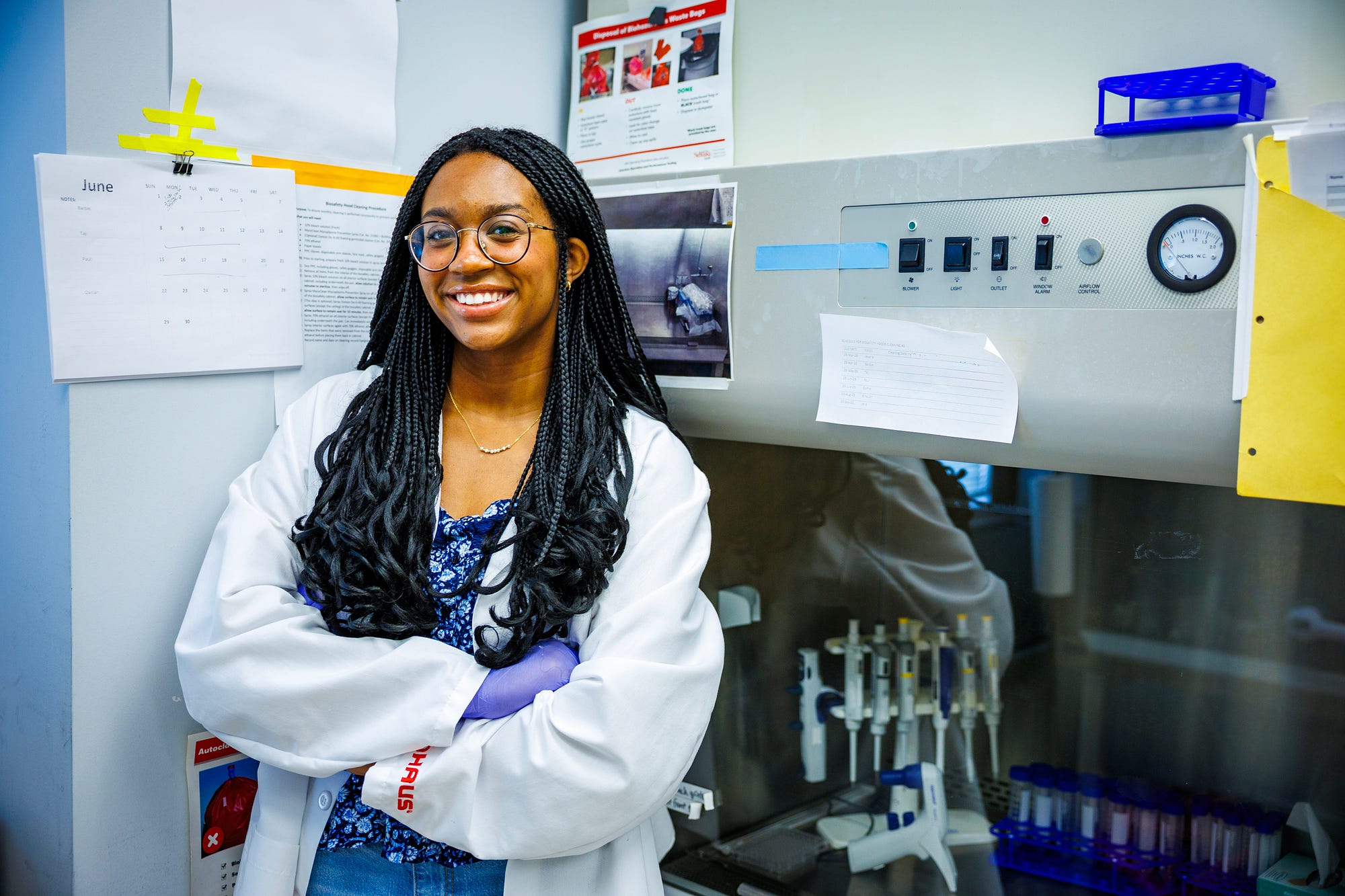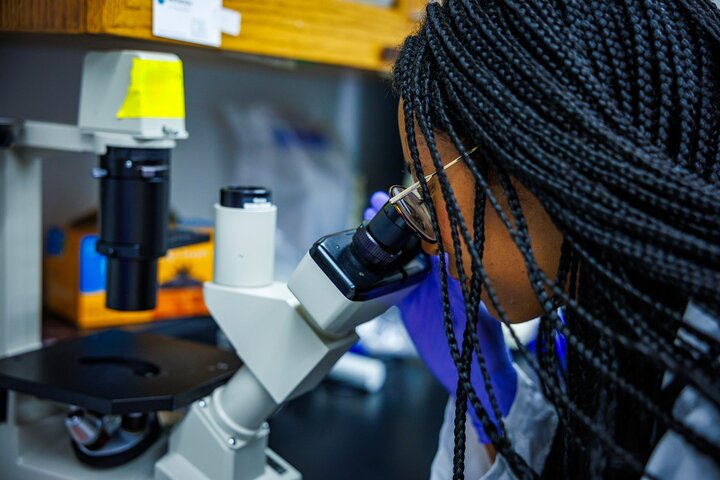June 11, 2025

Senior nutrition and health sciences major Laila Doyle knew she wanted to make a positive impact on the health and well-being of others. Through Undergraduate Creative Activities & Research Experience (UCARE), Laila is gaining hands-on experience, networking with faculty and fine-tuning her skills for a successful future.
What sparked your interest in getting involved in research during your undergraduate career?
I wanted to get involved with research because it is a great way to show you are a well-rounded student when applying to graduate schools. As a health sciences student, that experiential learning aspect is so important in your growth, and working with faculty and making those connections is crucial for so many facets of academics. I wanted to gain hands-on skills while also developing a relationship with faculty and professors with interests like mine.
As a student researcher with UCARE, you conduct research under the guidance of a faculty advisor. Explain your research: what it is about, and what kind of impact do you hope the research will have on the field?
My project is about metabolites released by satellite cells and the cross-talk between satellite cells and fibroblasts. To explain a little further, we investigated how obesity can impact muscle regeneration on a cellular level. That is where the cross-talk plays a role: satellite cells are released when there is muscle damage, whether that be through exercise or injury, and they differentiate into fibroblasts and heal that damage. So, if your body is an obese environment, we investigated how those satellite cells and fibroblasts express depending on their media.
This research will impact the field of nutrition because obesity is one of the most prevalent health conditions in America, and this can have a detrimental impact on your body’s ability to grow muscle and repair it muscle. It could also lead to muscle atrophy. So, by understanding more about the process of how gene expression is impacted due to different cellular environments, we can show what proteins are impacted by obesity and how this relates to other aspects of your metabolism.
Talk about being able to work directly with faculty members through UCARE. How has that impacted your college experience, interest in your major or plans for the future?
I really enjoyed working with my faculty mentor. I was able to ask questions about topics one-on-one and learn skills I can take with me after I graduate. It showed me how much lies within nutrition and health sciences but also helped me gain confidence in my abilities to present my research and complete complex protocols in the lab.


“Undergraduate research” may sound intimidating to some students. What would you tell other Huskers who are interested in research but may be hesitant?
Just try it! If you’re interested in research, there are faculty members out there interested in working with you. It doesn’t have to be a scary process; you could even reach out to professors you have classes with and see if they are conducting any research.
Is there anything that fellow Huskers may not know, but would be interested in knowing about UCARE?
UCARE is mostly known for the “science-y” aspect, but it is for all majors. So, feel free to be creative and show your passion for whatever you’re interested in. You can lead your own project or work more closely with your faculty mentor to help guide your experience.
Is there anyone at Nebraska who has had a positive impact on you?
For my research, I worked in the Bednarski Lab, but I mostly worked with post-doctoral student Adam Jan Olichwier. It was such a great opportunity to work with him and learn about his culture. I remember one day before we started working on PCR, he showed me some music from his home country of Poland. He was always so willing to answer my questions, work with my busy schedule and help me in any aspect I needed. He made such a great impact on me during my UCARE experience, so I’m glad we got to work together!
How has this hands-on learning opportunity added value to your collegiate experience, and how will it prepare you for a successful career postgraduate?
This experience has helped me most with my time management and presentation skills. Working 10 hours in the lab, while taking classes and being a part of other extracurricular activities wasn’t easy, but I worked hard to make sure I had time to dedicate to these experiences, and if I needed more time, I always made sure to communicate that in a timely manner. Presenting is something I’m not the biggest fan of, but being able to first present to a smaller group of research staff before presenting at Student Research Days made it so much easier to be confident in front of these new faces.
What are your plans or goals after you cross the graduation stage at Nebraska?
After graduation, I hope to attend occupational therapy school or join the Peace Corps. I really want to dedicate my life to serving others by supporting their health and wellness.